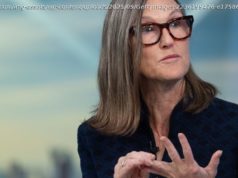Harvey Weinstein’s film studio is already disintegrating, as the public image the disgraced producer crafted for himself crumbles.
The power that Harvey Weinstein wielded—the power he abused for the entirety of his Hollywood career, according to dozens of allegations of harassment, rape, and assault—was wrapped up in his name. He made sure of that even before co-founding his own studio, The Weinstein Company, in 2005, encouraging his image in the press as that of a movie mogul pushing indie darlings to Oscar success and box-office triumph through sheer force of will. Though the earliest alleged incident goes as far back as 1980, before he was a famed mega-producer, Weinstein appears to have used his growing clout as a shield and a cudgel over the years, threatening to ruin his victims’ careers if they exposed him.
Weinstein’s fall from grace has been rapid after stories from The New York Times and The New Yorker detailed a wave of allegations against him two weeks ago. He was fired by The Weinstein Company (TWC), and, in an unprecedented step taken this past weekend, the Academy of Motion Picture Arts and Sciences voted quickly and overwhelmingly to expel him from its ranks. He is also now under criminal investigation by the Metropolitan Police in London. Weinstein’s downfall was brought about by dogged reporting, witnesses and victims having the bravery to come forward, and genuine changes in public attitudes toward such crimes, as my colleague Alex Wagner noted. His legacy, after decades of the producer burnishing his own reputation, has been obliterated.
Weinstein’s firing has prompted a torrent of stories about the “ open secret ” of his behavior, ranging from recollections of his propensity for verbal abuse to stories of repeated assault and harassment. His sacking has also led to questions about the future of the company he started with his brother Bob (who has called his brother “ depraved ” and insisted he was unaware of the extent of his behavior). The Weinstein Company had already been floundering in recent years, suffering from widely reported cashflow issues. Its tainted name will certainly have to change, but even a rebranding will probably not be enough to keep the studio alive.
Weinstein’s actions almost certainly became easier to expose after his industry influence dimmed. At the height of his powers, in 2003, four of the five Academy Award nominees for Best Picture had his fingerprints on them ( Gangs of New York, Chicago, The Hours, and The Lord of the Rings: The Two Towers). His connections to definitive ’90s directors like Quentin Tarantino and Kevin Smith made him seem like a pioneer of independent cinema, even though he was notorious for bullying young filmmakers and holding movies hostage until they were recut to his liking.
In the last few years, the Weinstein model had begun to feel somewhat outdated. Weinstein would still push films to Oscar nominations, but they were usually traditional, “worthy” biopics like Philomena, Lion, or The Imitation Game, pitched at the Academy’s older voters. Box-office successes were fewer and further between—the studio’s last film to gross more than $100 million domestically was Lee Daniels’s The Butler in 2013. TWC’s big Oscar player this year, the Thomas Edison movie The Current War, has been pushed back to 2018 amid the controversy surrounding Weinstein and muted reviews. Another prestige TWC drama, Tulip Fever, finally debuted this summer after a comically drawn-out post-production process presided over by Weinstein.
Like many movie studios, TWC had tried to expand profits by diversifying its output. The company had a TV production arm, which has begun to scrub Weinstein’s name from any future releases; another planned series, created by the director David O. Russell, has been scrapped entirely. Weinstein Books, an imprint under the Hachette Book Group, was shuttered last week. All of this seems to signal TWC’s larger dissolution—rumors are already swirling that the company’s film properties will be sold off, either in pieces or as a larger package deal. Bob Weinstein and TWC’s president David Glasser are separately insisting that the company can survive after conducting internal investigations. But the swiftness of the news cycle suggests otherwise.
When the initial New York Times story ran, Weinstein responded with a bizarre statement saying he would seek therapy to “conquer my demons,” but also claiming he would concentrate his energies on fighting the NRA. In a later statement, he begged for a “ second chance,” indicating that he thought a stint in rehab would be enough to earn forgiveness from the industry. If that seemed far-fetched then, it now sounds impossible just a week later.
In stripping Weinstein of his membership, the Academy said it intended “not simply to separate ourselves from someone who does not merit the respect of his colleagues but also to send a message that the era of willful ignorance and shameful complicity in sexually predatory behavior and workplace harassment in our industry is over.” Weinstein wanted his legacy in Hollywood to be on a par with Louis B. Mayer or Jack Warner, legendary producers who often dwarfed the artists they worked with and were known for their domineering tactics. Instead, the best he can hope for is that his undoing spurs meaningful, lasting change in a business that has tolerated institutional sexism since its founding. Harvey Weinstein’s name will live in infamy—but it won’t be for the movies he made.






